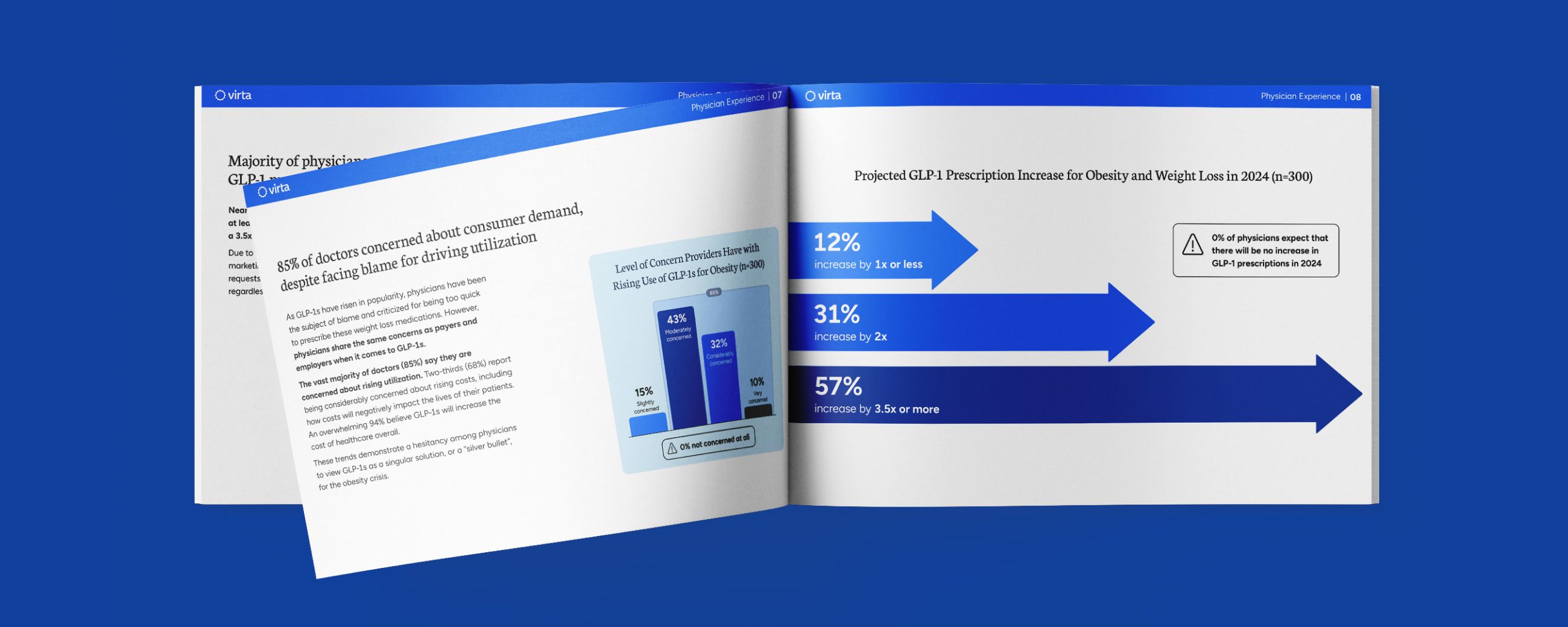
New Research at ADA’s 83rd Scientific Sessions: Virta Helps Members Improve Kidney Function, Sleep, and More

Research and scientific leadership have always been foundational to our mission at Virta. This weekend, we built on this foundation by once again presenting research at the annual American Diabetes Association’s Scientific Sessions.
Below, we’ve linked and summarized each of the four abstracts on the topics of health equity, kidney function, sleep, and nutritional ketosis. These findings offer a window into a better future for those with metabolic conditions that we hope will inform care and improve outcomes in years to come.
As always, we welcome questions about our research, so please reach out or leave a comment below!
Virta’s approach closes gaps in diabetes care for underserved populations
Diabetes is one of America's most pressing health equity issues, with glaring inequities in prevalence, care, prescription trends, and outcomes. For instance, amputation rates can vary significantly by zip code, even in the same city.
Our latest research highlights how Virta’s approach narrows these types of disparities and eliminates gaps in care. Across the most and least advantaged areas in the country, members all saw significant metabolic health improvement and deprescription of medications like insulin.
For more details, read the full abstract here and our press release here, as well as our previous research on health equity.
Virta patients see improved kidney function
Up to 4 in 10 people with diabetes will develop chronic kidney disease (CKD). In later stages, CKD can lead to complications like heart disease or nerve damage, and even progress to kidney failure, requiring dialysis or transplant.
Our findings offer hope to these patients. At two years, Virta patients—including those with CKD—see improved kidney function, demonstrating that our approach may slow the progression of this disease.
Virta’s Chief Medical Officer Adam Wolfberg, MD, and Head of Research and Innovation, Amy McKenzie, PhD, dive deeper in a 1:1 video interview here. Full abstract here.
Virta patients with prediabetes see long-term improvement in sleep
Metabolic disease and sleep disorders are inextricably linked—diabetes often worsens sleep, and poor sleep is associated with worse metabolic markers such as blood sugar and weight.
Adding to previous research showing that Virta patients with diabetes improve sleep at five years, this study confirms improvement for people living with prediabetes. Full abstract here.
Nutritional ketosis directly related to improvements in cardiometabolic health
Despite peer-reviewed data to the contrary, perceptions that ketogenic or low-carb approaches are harmful to heart health, and that they cannot be maintained long-term, remain common.
Our final abstract debunks both of those myths, demonstrating that:
- Virta can be sustained over two years, with nearly 90% of patients consistently adhering to our nutritional approach and maintaining some level of ketosis during that period.
- At two years, patients maintaining any level of ketosis saw sustained improvements in blood sugar and weight loss. The higher the level of ketosis, the greater the impact on cardiometabolic health, including continued improvements in atherogenic dyslipidemia.
Full abstract here.
Going forward, we’ll be hard at work putting these findings into practice with our members while continuing to share our research with the broader medical and research communities. Together, we can build a healthier, more hopeful future for people with metabolic disease.
This blog is intended for informational purposes only and is not meant to be a substitute for professional medical advice, diagnosis, or treatment. Always seek the advice of your physician or other qualified health provider with any questions you may have regarding a medical condition or any advice relating to your health. View full disclaimer
Are you living with type 2 diabetes, prediabetes, or unwanted weight?








